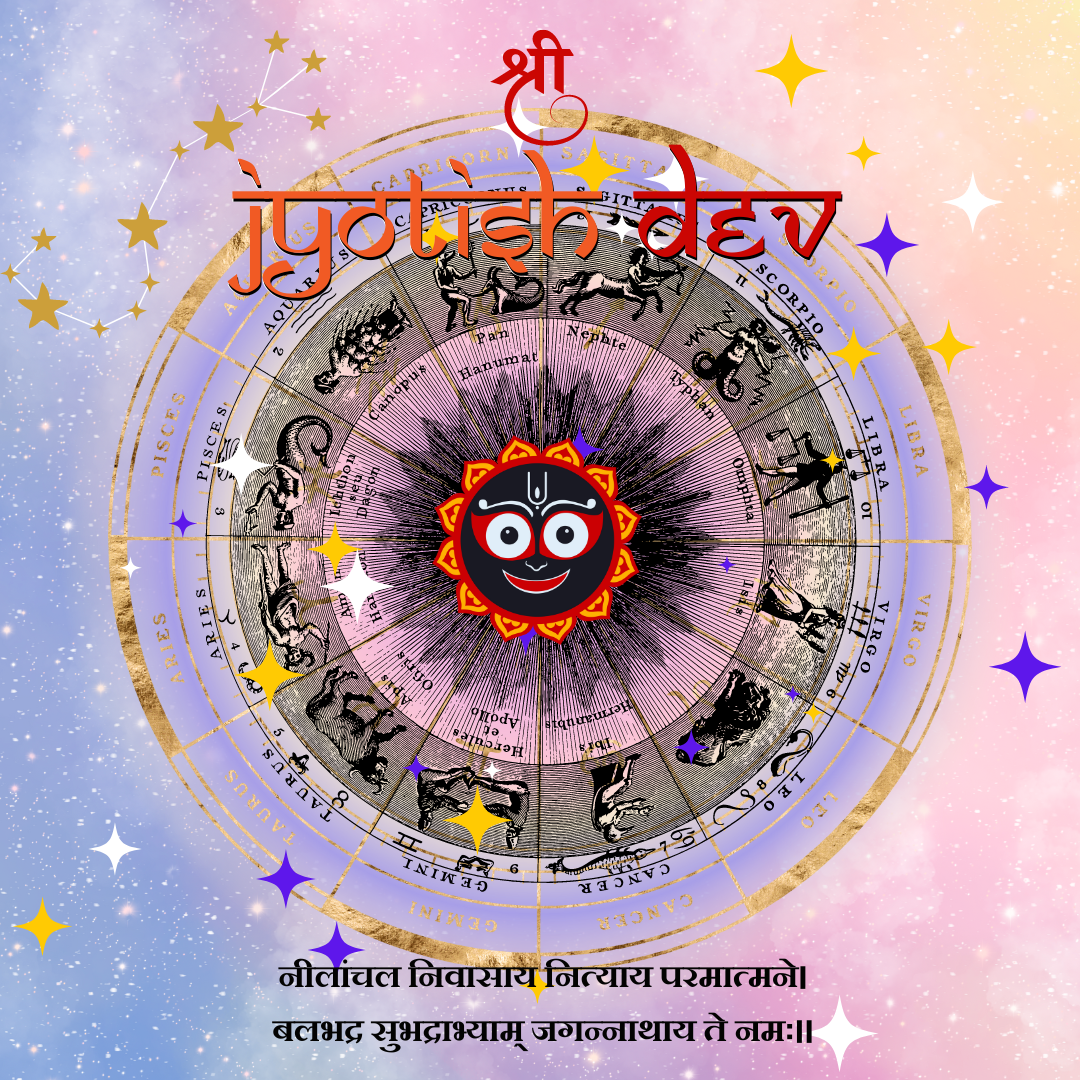The Unique Approaches of Vedic and Western Astrology

Astrology, whether in Vedic astrology vs Western astrology, captivates you with its unique approaches. Vedic astrology, rooted in ancient Hindu scriptures, emphasizes spirituality and karmic implications, offering guidelines for living through spirit and intention. In contrast, Western astrology delves into psychological depth, exploring personality traits and behavioral patterns. Understanding these differences between Vedic astrology vs Western astrology enriches your journey of self-discovery and personal growth. As you explore the intricacies of astrology, remember it serves as a tool for guidance and a deeper connection to the universe.
Historical Background of Vedic and Western Astrology

Origins of Vedic Astrology
Vedic astrology, also known as Jyotish, traces its origins back to ancient India. You find its roots deeply embedded in the Vedas, which are sacred texts that date back thousands of years. These texts provide a spiritual and philosophical foundation for Vedic astrology. Over centuries, this form of astrology has evolved, yet it has remained remarkably intact. The enduring nature of Vedic astrology speaks to its profound connection with Hindu philosophy and spirituality. It offers you insights into life, emphasizing the importance of karma and dharma.
Origins of Western Astrology
Western astrology has its beginnings in ancient Babylon and Greece. You can see its development influenced by the rich tapestry of Greek and Roman cultures. These civilizations contributed significantly to the astrological knowledge that you encounter today. During the Middle Ages and the Renaissance, Western astrology underwent significant transformations. It adapted and reinvented itself, incorporating elements of Hellenistic and ancient Greek philosophy. This evolution allowed Western astrology to remain relevant and accessible, providing you with a framework to explore personality traits and psychological patterns.
"Astrology is a language. If you understand this language, the sky speaks to you." - Dane Rudhyar
Both Vedic and Western astrology share a common goal: to offer guidance and insight into the human experience. By embracing both traditions, you can access a broader spectrum of astrological wisdom. Whether you lean towards the spiritual depth of Vedic astrology or the psychological insights of Western astrology, each system enriches your understanding of the cosmos and your place within it.
Methodological Differences in Vedic Astrology vs Western Astrology
Astrology offers you a fascinating glimpse into the cosmos, but the methodologies of Vedic astrology and Western astrology differ significantly. Understanding these differences can enhance your appreciation of each system's unique approach.
Zodiac Systems
Sidereal zodiac in Vedic astrology
In Vedic astrology, the sidereal zodiac forms the foundation of your astrological chart. This system aligns with the fixed positions of stars, providing a celestial map that reflects the actual constellations in the sky. By focusing on the sidereal zodiac, Vedic astrology emphasizes the Moon's position, offering insights into your emotional and spiritual journey. The division of the sky into 27 Nakshatras, or lunar mansions, further enriches this approach, allowing you to explore the intricate details of your destiny and karma.
Tropical zodiac in Western astrology
Western astrology, in contrast, utilizes the tropical zodiac, which is based on the Earth's orbit around the Sun. This system divides the sky into 12 equal segments, each corresponding to a zodiac sign. The tropical zodiac emphasizes the Sun's placement, highlighting your core personality traits and psychological patterns. By aligning with the seasons, Western astrology provides you with a framework to understand your personal growth and self-awareness. This approach allows you to explore how the changing seasons influence your life and behavior.
Planetary Influences
Role of outer planets in Western astrology
Western astrology places significant importance on the outer planets—Uranus, Neptune, and Pluto. These celestial bodies influence generational shifts and societal changes, offering you insights into broader trends and transformations. By examining the aspects and transits of these planets, you can gain a deeper understanding of how they impact your life and the world around you. This focus on outer planets allows Western astrology to provide a comprehensive view of both individual and collective experiences.
Importance of lunar nodes in Vedic astrology
In Vedic astrology, the lunar nodes, known as Rahu and Ketu, play a crucial role in shaping your life's path. These points represent the intersection of the Moon's orbit with the ecliptic, symbolizing karmic lessons and spiritual growth. By analyzing the positions of Rahu and Ketu in your chart, Vedic astrology offers you guidance on overcoming challenges and fulfilling your life's purpose. This emphasis on lunar nodes highlights the spiritual depth and transformative potential of Vedic astrology.
By exploring the methodological differences between Vedic astrology vs Western astrology, you can appreciate the unique insights each system offers. Whether you resonate with the spiritual focus of Vedic astrology or the psychological depth of Western astrology, both approaches provide valuable tools for self-discovery and personal growth.
Chart Interpretations in Vedic Astrology vs Western Astrology
Astrology offers you a window into the cosmos, and the way charts are interpreted in Vedic astrology vs Western astrology reveals their distinct approaches. Each system provides unique insights into your life and personality.
Vedic Astrology Techniques
Use of Nakshatras
In Vedic astrology, nakshatras play a crucial role in chart interpretation. These 27 lunar mansions divide the sky and offer detailed insights into your emotional and spiritual journey. Each nakshatra has its own characteristics and influences, helping you understand your innate tendencies and potential challenges. By focusing on nakshatras, Vedic astrology provides a nuanced view of your destiny and karmic path.
Dasha Systems for Timing Events
Vedic astrology employs dasha systems to predict the timing of significant life events. These planetary periods reveal when certain influences will dominate your life, offering guidance on how to navigate challenges and opportunities. The dasha system emphasizes the cyclical nature of life, aligning with the Vedic philosophy of karma and reincarnation. By understanding your dasha periods, you gain insight into the timing of important events and how they align with your life's purpose.
Western Astrology Techniques
Aspects and Transits
Western astrology focuses on aspects and transits to interpret your chart. Aspects describe the angles between planets, revealing how different energies interact in your life. Transits show how current planetary movements affect your natal chart. By analyzing aspects and transits, Western astrology provides insights into your psychological patterns and personal growth. This approach helps you understand how external influences shape your experiences and behaviors.
Use of Houses and Signs
In Western astrology, houses and signs form the foundation of chart interpretation. Each house represents a unique area of life, such as career, relationships, or health. The zodiac signs add another layer of meaning, highlighting your core personality traits and tendencies. By examining the interplay between houses and signs, Western astrology offers a comprehensive view of your life and potential. This method allows you to explore how different aspects of your personality influence your decisions and interactions.
Both Vedic astrology and Western astrology offer valuable tools for understanding your life and personality. By exploring the unique techniques of each system, you can gain a deeper appreciation for the insights they provide. Whether you resonate with the spiritual depth of Vedic astrology or the psychological focus of Western astrology, both approaches enrich your journey of self-discovery.
Practical Applications of Vedic Astrology vs Western Astrology
Astrology offers you practical tools for navigating daily life and personal growth. Both Vedic and Western astrology provide unique applications that can enrich your understanding and decision-making.
Vedic Astrology in Daily Life
Muhurta (auspicious timing)
In Vedic astrology, the concept of Muhurta plays a vital role in planning important events. You can use Muhurta to choose the most auspicious time for activities like weddings, business ventures, or travel. By aligning your actions with favorable planetary positions, you increase the likelihood of success and harmony. This practice emphasizes the importance of timing and cosmic alignment in achieving your goals.
Remedies and rituals
Vedic astrology also offers remedies and rituals to mitigate negative influences and enhance positive energies. You might engage in specific rituals, such as chanting mantras or wearing gemstones, to balance planetary effects. These practices aim to harmonize your life with cosmic forces, promoting well-being and spiritual growth. By incorporating these remedies, you can address challenges and cultivate a more balanced existence.
Western Astrology in Modern Context
Psychological insights
Western astrology provides valuable psychological insights into your personality and behavior. By examining your birth chart, you gain a deeper understanding of your strengths, weaknesses, and emotional patterns. This knowledge helps you navigate relationships and personal challenges with greater awareness. Western astrology encourages you to explore your inner world, fostering self-reflection and emotional intelligence.
Personal growth and self-awareness
Western astrology also supports personal growth and self-awareness. You can use astrological insights to identify areas for development and transformation. By understanding the influence of planetary transits, you can anticipate periods of change and growth. This awareness empowers you to make informed decisions and embrace opportunities for self-improvement. Western astrology serves as a guide for your journey toward self-discovery and fulfillment.
Consider the story of Alex, an artist who faced a creative block. Vedic astrology advised perseverance during a challenging Saturn Dasha, while Western astrology highlighted the need for emotional expression. By combining these insights, Alex adopted a disciplined routine and embraced emotional creativity, leading to a breakthrough in their art.
Both Vedic and Western astrology offer practical applications that enhance your life. Whether you seek auspicious timing through Vedic astrology or psychological insights from Western astrology, each system provides valuable tools for navigating life's complexities. By exploring the practical aspects of Vedic astrology vs Western astrology, you can enrich your journey of self-discovery and personal growth.
Cultural Significance of Vedic Astrology vs Western Astrology

Astrology's influence extends beyond personal insights, deeply embedding itself in cultural practices and beliefs worldwide. Both Vedic and Western astrology have left indelible marks on their respective cultures, shaping traditions and societal norms.
Vedic Astrology in Indian Culture
Role in Marriage and Career Decisions
In India, Vedic astrology plays a pivotal role in significant life decisions, particularly in marriage and career choices. Families often consult astrologers to match horoscopes before arranging marriages. This practice aims to ensure compatibility and harmony between partners, reflecting the belief in cosmic alignment. Similarly, career decisions frequently involve astrological guidance, with individuals seeking advice at auspicious times to start new ventures or change jobs. Vedic astrology offers a framework for making informed decisions, aligning personal choices with cosmic influences.
Influence on Festivals and Traditions
Vedic astrology also profoundly influences Indian festivals and traditions. Astrological calculations, such as the timing of Diwali or Holi, determine the celebration of many festivals. These celebrations often coincide with specific planetary positions, believed to enhance the spiritual and cultural significance of the events. Rituals and ceremonies incorporate astrological elements, emphasizing the connection between celestial movements and earthly life. This integration of astrology into cultural practices highlights its enduring impact on Indian society.
Western Astrology in Popular Culture
Media and Entertainment
Western astrology has permeated popular culture, particularly in media and entertainment. Horoscopes appear in newspapers, magazines, and online platforms, offering daily insights into personality traits and future predictions. Television shows and movies often reference astrological themes, using zodiac signs to develop characters or plotlines. This widespread presence reflects astrology's appeal as a tool for understanding human behavior and relationships. By engaging with astrological content, you can explore your personality and gain insights into your interactions with others.
Influence on Lifestyle and Fashion
Astrology also influences lifestyle and fashion trends in Western culture. Many people incorporate zodiac symbols into their personal style, wearing jewelry or clothing that reflects their astrological sign. Fashion designers often draw inspiration from celestial themes, creating collections that resonate with astrological motifs. Lifestyle choices, such as wellness practices or travel plans, may align with astrological insights, guiding individuals toward personal growth and self-expression. This integration of astrology into daily life underscores its relevance and adaptability in modern society.
"Astrology is a language. If you understand this language, the sky speaks to you." - Dane Rudhyar
Astrology, whether through Vedic or Western traditions, continues to shape cultural identities and practices. By exploring the cultural significance of these systems, you can appreciate their enduring impact on society and their role in guiding personal and communal experiences.
Vedic astrology vs Western astrology presents distinct methodologies and insights. Vedic astrology emphasizes Nakshatras and lunar nodes, offering spiritual guidance rooted in ancient texts. Western astrology focuses on zodiac signs and the Sun's position, providing psychological insights. Both systems hold cultural significance, influencing traditions and modern practices. You can apply these methodologies to enhance self-awareness and decision-making. Exploring both systems enriches your understanding of celestial forces and human life, guiding you toward personal growth and self-discovery.
See Also
Investigating Vedic Astrology Through Scientific Approaches
Using Psychological Astrology for Enhanced Self-Understanding

